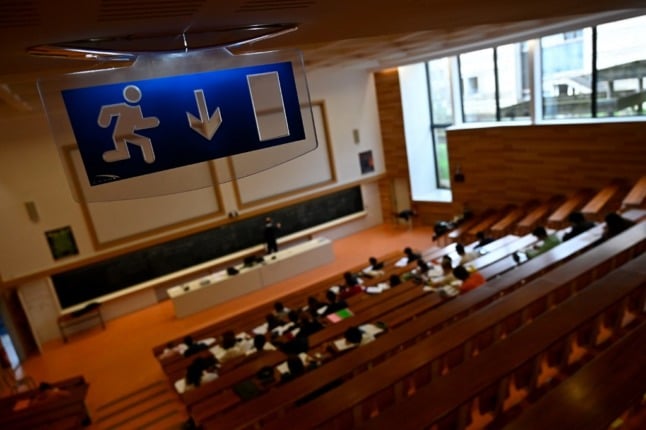The same will apply to activities on campus, such as sports classes, which are only attended by students and members of staff, as well as university canteens and libraries.
But the passe sanitaire (health passport) will be required to attend other university events, including cultural, leisure or sporting events at venues that also accept members of the public. This will include any conferences or seminars open to the public attended by 50 people or more.
Some 2.5 million self-tests have already been delivered to universities, which will be able to distribute them for free among the student body – and the government has said it will cover the cost of future orders.
Students, set for a return to full in-person education, will also still have to wear a mask indoors, given the current health situation, minister Frédérique Vidal told Le Parisien.
READ ALSO Full classes and no health passports – how French schools will restart in September
She said that she wanted the new academic year to be “as normal as possible”, and said there would be no limits on numbers in lecture theatres.
But she warned that universities may have to adopt random or systematic Covid-19 screening methods if a cluster of cases is detected. If three positive cases of the virus are detected in a single teaching group over a rolling seven-day period, the university must contact health authorities and begin contact tracing.
In such cases, anyone who tests positive and any unvaccinated contact cases will have to self-isolate for seven days. Any contact case who has been fully vaccinated will not have to isolate.
Health authorities, meanwhile, will set up vaccination centres on campus and students not already inoculated will be encouraged to protect themselves against Covid-19.



 Please whitelist us to continue reading.
Please whitelist us to continue reading.
Member comments